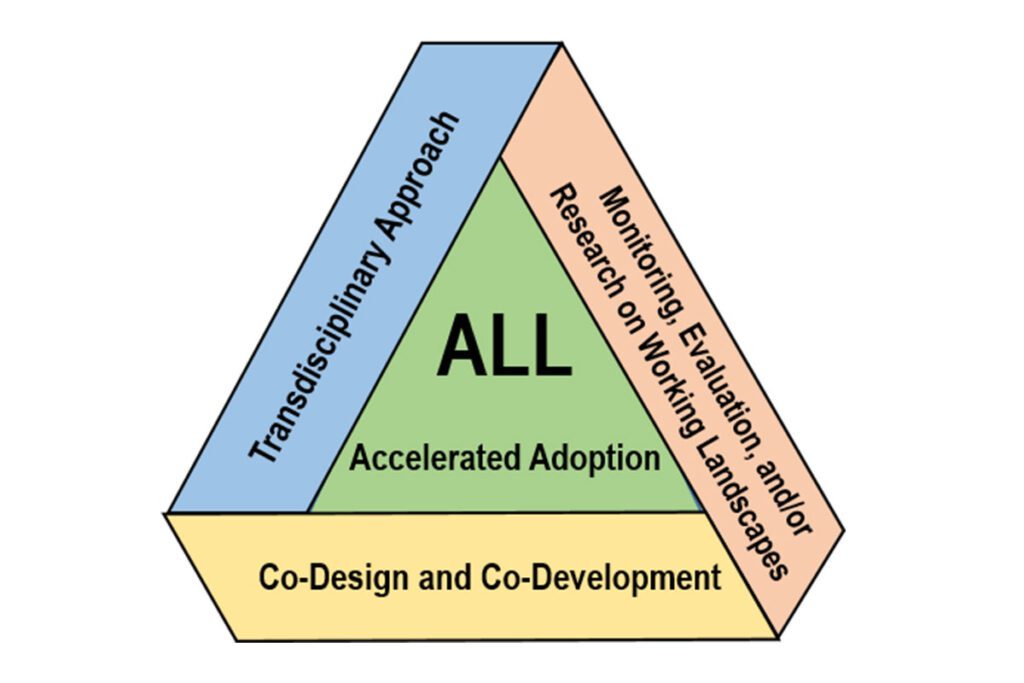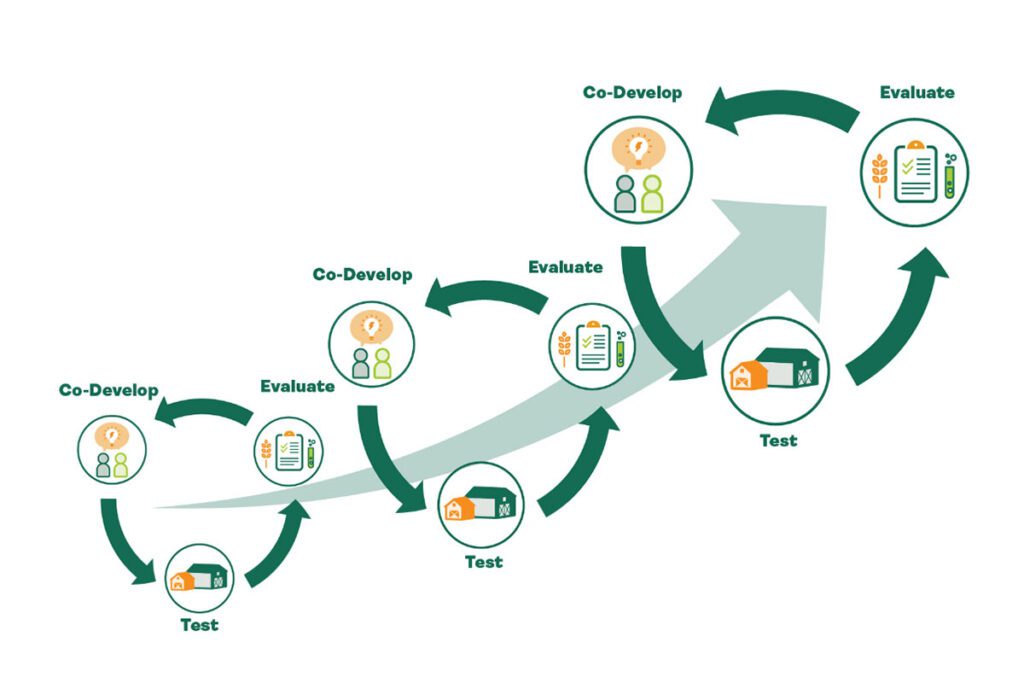Project Overview

More and more, we are seeing that collaborative approaches and user-centred solutions are increasingly effective in solving complex environmental and societal problems. Living Labs (LLs) are an approach that brings various actors together (stakeholders, researchers, decision-makers, users, etc.) to co-create solutions through testing, experimentation, evaluation, and dialogue within a real-world environment. It is user-centric and allows for potentially more accelerated adoption of solutions and best practices. Living labs can be both a research methodology and infrastructure to apply research. Working with Agriculture and Agri-Food Canada as well as LLiO, our project aims to better understand and promote the potential of Living Labs as a collaborative open innovation approach within the environmental and agricultural sector.
Project Objectives
1. Identify what knowledge gaps exist for better understanding the impacts and effectiveness of living labs in environmental and agricultural sustainability
2. Develop a research agenda to address those research gaps
3. Build a network of living lab experts in Canada
Some of the questions we ask include:
- How are the value, performance and success of LLs conceptualized?
- What general evaluation metrics are most appropriate to ensure the effectiveness of LLs, and what metrics are specifically targeted at the social components?
- What research and knowledge are required to evaluate LLs, generally, and what ones are specific to environmental and agricultural sustainability?
- What are examples of effective adaptation measures adopted via the LL approach in Canada and other jurisdictions? How have these measures been established and accelerated?
Project Team
Other Collaborators: Dr. Steve Joncoux, Dr. Jean-Francois Jasmin, Dr. Sandra Schillo









